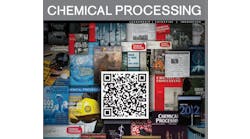“. . . . in the presence of these my betters and my equals in my calling, bind myself upon my honour and cold iron, that, of the best of my knowledge and power, I will not henceforth suffer or pass, or be privy to the passing of, bad workmanship or faulty material in aught that concerns my works before mankind as an engineer, or in my dealings with my own soul before my maker.”
In 1922, Rudyard Kipling wrote those words to accompany Canada’s oath of an engineer ritual. Part of the ritual includes the gifting of an engineer’s ring, which is worn on the little finger of the dominant hand, so it will drag across any surface on which the wearer writes, providing a constant reminder of the oath. Countries around the world have similar oaths. Indeed, the first American ceremony took place on June 4, 1970, at Cleveland State University's Fenn College of Engineering.
I went down the rabbit hole of ethics ceremonies after a recent podcast episode of Process Safety with Trish & Traci, which was inspired by a study about DuPont’s and 3M's decades-long knowledge about the toxicity of per-and polyfluoroalkyl substances, or PFAS, in their products. Trish Kerin, director of the IChemE Safety Centre, and I discussed transparency and the need for professionals to exercise their ethical judgment.
“Ethics is a particularly challenging area in any profession,” Kerin stated. “That's because it's about doing what's right, not necessarily doing what's easy or what's cheapest or what's financially better for the company at the time.”
Kerin knows what it's like to be on the receiving end of a career-limiting consequence. “When you stand up for something, you believe in ethics. It hasn't harmed my career long-term, but at the time, it was devastating,” she said of the instance she defied orders from her supervisor because it breached her oath.
Alison Fraser, a chemical engineer with Actalent, a talent group specializing in engineers and scientists, took an oath of ethics as well when she participated in the Kipling-inspired ceremony after graduating from McGill University with a master’s degree in chemical engineering.
“Like all graduates of engineering programs in Canada, I was eligible to participate in the Iron Ring ceremony,” explains Fraser. “The ring is actually made of stainless steel, not iron, which is obviously much more practical in terms of corrosion resistance!”
She says she’s been fortunate not to face significant challenges that would conflict with that oath but working in regulatory compliance, she has run into situations where clients want to take an action that is legal but, in her professional opinion, not ethical.
“I've had clients ask if they can move production to a lower-cost country with laxer regulations, so they can keep using a carcinogenic product rather than changing the designs so that a non-carcinogenic product can be used instead. This is legal, but if a chemical is a carcinogen in Europe, it's a carcinogen everywhere in the world. So ethically, this is a non-starter since workers, and potentially the public, are being put at risk unnecessarily.”
In these cases, she points out the long-term drawbacks and higher costs of the non-ethical approach. “I make it clear that I will never sign off on anything that goes against my professional ethics. It's OK to be firm. And make sure to be consistent no matter how important the client or project is. When you're consistent, you’ll gain people's respect, and over time you might find that pushback changes into support.”
It's that kind of fortitude that Kerin champions. “A company is defined by its people,” Kerin said in the podcast. “We need our people to be ethical. We need them to be standing up for what's right. We need to show them through leadership what that looks like, and we need to support them with processes that encourage the right behaviors and discourage the wrong behaviors.”
Fraser agrees. A few years into her career, the importance of ethics became personal for her when she lost a relative to a workplace-related health issue. “Whenever I make a decision related to professional ethics, I like to think I could be saving at least one family from going through what mine did. It’s so important for us to remember, as engineers, what an important and positive impact we can have.”



